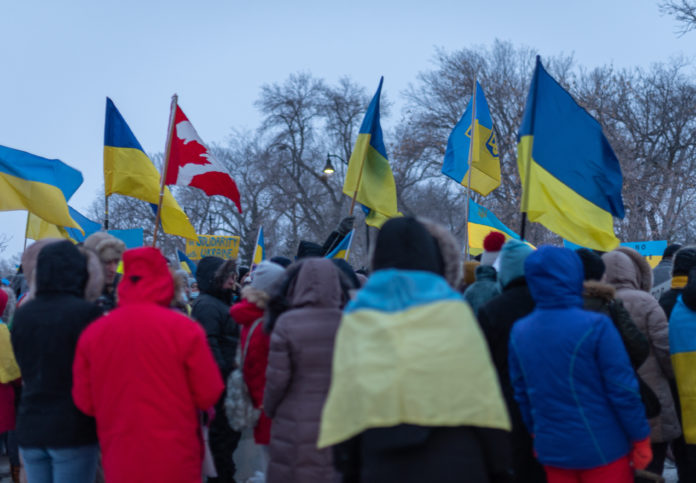
A trilingual hotline to help Ukrainians in Canada access the legal services they need for the coming three years has been set up with $475,788 funding from Canada’s federal government.
The money is going to Pro Bono Ontario’s Ukrainian Refugee Legal Relief Initiative and will allow displaced Ukrainians access legal information and advice, including the toll-free hotline that is accessible nationally and abroad.
The hotline will provide Ukrainians in Canada with access Canadian lawyers so they can ask immigration-related questions on such things as sponsorship, refugee claims and work permits or be referred to provincial pro bono organizations or community groups across Canada.
“Our government is grateful to be able to count on organizations, such as Pro Bono Ontario, that improve access to justice, a fundamental Canadian value and an integral part of a fair and effective justice system,” said Justice Minister Arif Virani.
“This investment shows how our government continues to stand with Ukraine, and that we will continue to support Ukrainians forced to flee their homes because of Russia’s illegal invasion.”
Read More Canada Immigration News
Prime Minister Justin Trudeau Calls Winnipeg A Canada Immigration Success Story
How To Drive Safely As A Newcomer To Canada
Refugees From Tanzania and Mexico Eligible For Canada’s Economic Mobility Pathways Pilot
Kirsti Mathers McHenry, Pro Bono Ontario’s executive director, said the funding will allow the organization to provide frontline legal services to Ukrainians.
“Thanks to department of justice support, we have been able to leverage our innovative hotline model and partnerships with legal groups and community service agencies to ensure that Ukrainians’ legal needs, whether they relate to immigration, housing, or employment. are being met quickly,” said Mathers McHenry.
“Although our national hotline only launched in June 2022, we have already helped more than 1,300 people whose lives were suddenly upended.”
Canada, home to 1.3 million people of Ukrainian descent, welcomed 221,231 Ukrainians into the country under the Canada-Ukraine Authorization for Emergency Travel (CUAET) program between March 17, 2022, and Jan. 27 this year, according to Immigration, Refugees and Citizenship Canada (IRCC).
Watch Video
The program also received 1,189,320 applications during this period, of which 958,190 were approved.
The trilingual hotline to provide legal services to displaced Ukrainians is one of many special measures Ottawa has introduced to support the Ukraine. Canada also offers Ukrainians and their family members free, extended temporary status and allows them to work, study and stay in Canada until it is safe for them to return home.
Russian President Vladimir Putin’s forces invaded the Ukraine in February 2022, prompting Canada to respond by opening its arms to Ukrainians and putting in place the CUAET pathway in mid-March that year.
CUAET Lets Displaced Ukrainians Work And Study In Canada
The CUAET pathway was meant to allow those fleeing Putin’s war in the Ukraine to stay in Canada for up to three years and make them eligible for free open work and study permits.
Ottawa also upped its immigration application processing capacity in Europe after implementing the CUAET pathway and sent mobile biometrics kits to Warsaw, Vienna and Bucharest to take the fingerprints and portrait photos of prospective Ukrainian refugees in a bid to ensure proper security precautions were taken with the surge in applications.
The government then increased its federal settlement programs to include language training, orientation, employment assistance and other supports for Ukrainians as they settled into their new communities.
In addition to settlement services, Ukrainians fleeing to Canada were also offered transitional financial assistance of $3,000 per adult and $1,500 per child.
“These funds will help Ukrainian nationals and their family members meet their basic needs, such as transportation and longer-term housing, as they arrive in communities across Canada and find a job,” notes IRCC on its website.
“Settlement services will remain available to Ukrainians and their family members after they arrive so that they can fully participate in Canadian communities while they are here. Ukrainians and their family members will also continue to benefit from the one-time transitional financial support, as well as from access to emergency accommodations for up to two weeks, if needed, after they arrive in Canada.”
Once the CUAET stopped taking applications from overseas, Ukrainians wishing to come to Canada from abroad were still able to apply for a visa or a work or study permit through the IRCC’s existing temporary resident programs but were then subject to fees and standard requirements.

